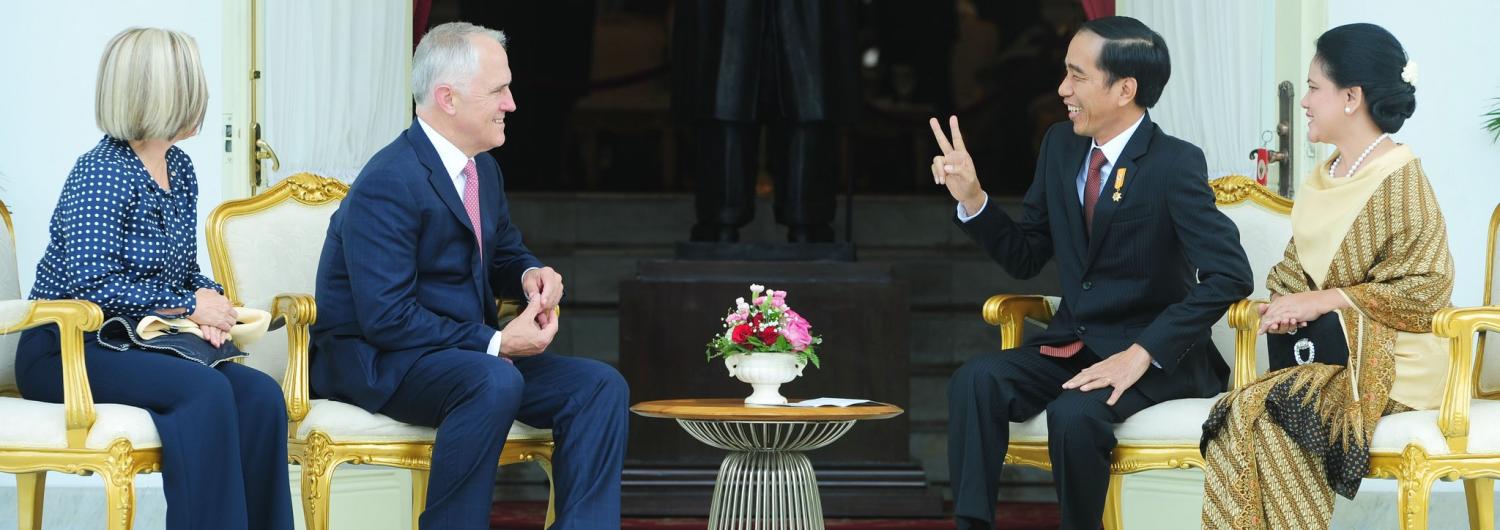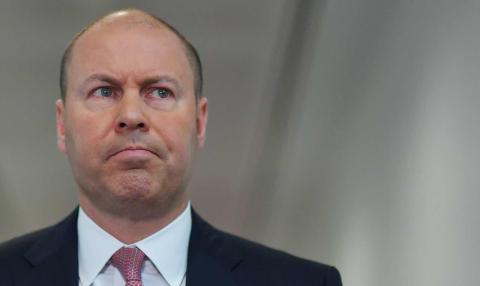Indonesian President Joko Widodo is scheduled to visit Sydney on Saturday and Sunday, where he will meet the prime minister, governor general, business leaders, and the Indonesian community. It will be a brief affair, much shorter than the four-day state visit - punctuated by an address to Parliament - that Australia was prepared to throw for him in November.
That visit was cancelled at the last minute after massive demonstrations against Jakarta Governor Basuki Tjahja Purnama on 4 November, the day before Jokowi was due to depart. At the time, Jokowi feared that the protests against Ahok, as the governor is universally known, could lead to civil unrest or transform into a movement against his presidency. Since then, Jokowi has taken steps to blunt the force of the movement against Ahok by attending a later anti-Ahok protest, allowing his erstwhile deputy to be put on trial for blasphemy, and charging Ahok’s chief antagonist with a similar crime.
These moves remain controversial, and represent steps backward in the struggle for a more pluralist Indonesia. But they have helped to sideline and delegitimize the protest leaders, and at least for the moment, removed much of the cause for complaint that they articulated last year. Elections in Jakarta on 15 February proceeded without incident, and a runoff between Ahok and former education minister Anies Baswedan is scheduled for 19 April. That Jokowi now feels comfortable making a short visit to Australia suggests he feels more secure - but not secure enough for a week’s absence.
The bilateral relationship has also seen a remarkable return to good health over the last year and half, despite last month’s storm in a teacup over Indonesian Chief of Defence Forces Gatot Nurmantyo’s efforts to limit military cooperation between the Indonesian Armed Forces and the Australian Defence Forces. As I noted in November:
Cooperation on a range of issues between the two governments has resumed or continued apace. New areas of cooperation, such as in cybersecurity and counter-terrorism financing, have opened up. Relationships between ministers and their counterparts are generally good, particularly between Australian ministers and two of Jokowi’s closest advisors, Coordinating Minister for Maritime Affairs Luhut Panjaitan and Investment Promotion Authority Chairman Tom Lembong. Foreign Minister Julie Bishop says she’s 'text buddies' with her counterpart Retno Marsudi, and Jokowi has remarked to aides that Turnbull left a positive impression on him during his visit to Jakarta [in November 2015].
Australian attitudes toward Indonesia are also at a high. In our last year’s Lowy Institute poll, Australian feelings toward Indonesia registered 54º, equaling their highest mark in our eleven years of polling. This demonstrated a remarkable recovery from the 2015 poll, when Indonesia registered 46º, its lowest mark (eight-point swings such as these are highly unusual in the history of the Poll’s thermometer). Over nine out of ten Australian respondents said they believed the relationship to be important or very important.
Given the unprecedented goodwill between the Australia and Indonesia, and the likelihood that another crisis will emerge in time, it is worth asking what more can be done to take advantage of this moment. Though there are a variety of opportunities for further cooperation in specific fields, two broad areas dominate the bulk of the discussion: trade and investment, and the strategic situation in the region. But it is important to keep expectations for progress on both reasonable. As I wrote ahead of the postponed November visit:
It has become a koan of bilateral talkshops to note that the economic relationship is underdone, and that Australia does more trade with New Zealand than Indonesia. Both governments have undertaken substantial efforts to increase engagement on trade and investment in recent years.
But on trade, there is little to be done on a bilateral basis and some reason to question whether it is worth doing. The greatest obstacle to trade is Indonesian protectionism, on which Australian officials and others are always fighting a rearguard action. Even then, as large resource exporters, the Indonesian and Australian economies are not particularly complementary. Where they are complementary, on agriculture, Australia’s advantages serve to exacerbate longstanding Indonesian fears about dependence on others for its food security, and add tension to the relationship.
Jokowi’s focus on attracting investment in maritime infrastructure would argue for a focus on developing Australian investments in Indonesia. But Indonesia’s inadequate infrastructure, endemic corruption, and legal uncertainty are all major obstacles to greater Australian investment (this tends to push investment toward the politically sensitive resources sector, where Indonesians often perceive foreigners as looters of the national patrimony, thus creating additional political tensions in the relationship).
As a result, the pace of progress on trade and investment will be set by the speed of economic and legal reforms in Indonesia, which have slowed after encouraging noises out of Jakarta early on. Australian policy can do no harm by insisting that ongoing negotiations toward a Comprehensive Economic Partnership Agreement (CEPA) result in a high standard agreement (in which Indonesia must make reforms on matters such as the competitive advantages that its state-owned enterprises receive, and protectionist localisation regulations) rather than quickly concluding an agreement for the sake of concluding an agreement, or for the sake of temporarily resolving discrete sectoral issues, such as in the live cattle trade. But this is likely to be a long slog, not a quick win.
Could there be opportunities in the strategic space? Australians’ and Indonesians’ perspectives on the challenges presented by China’s rise have more in common than they often realise. Both are two large resource exporters with a profitable economic relationship with China, but also similar concerns about the nature of Beijing’s behavior as it grows in power and influence.
But Turnbull and Jokowi differ in their understanding of the nature of the risks that Chinese assertiveness poses. Turnbull sees a broad, long-term risk to the regional order, to be confronted by first principles diplomacy; while Jokowi sees a narrow dispute over maritime rights to be managed in the short-term through deterrence and accommodation. Moreover, Indonesian officials, particularly in the Foreign Ministry, are sceptical of being seen as too closely aligned with the US or one of its major allies. Jakarta is likely to continue to pursue a ‘dynamic equilibrium’, as former foreign minister Marty Natalegawa put it, between Beijing and Washington. As a result, while there may be scope for some limited diplomatic coordination, there is little prospect of coordinated military action in the South China Sea.
As I wrote in November:
Enthusiasts for the bilateral relationship on both sides may find the limited additional space for cooperation outlined here uninspiring. But by keeping expectations in check, and adopting a straightforward and businesslike approach to further cooperation, Jokowi and Turnbull can better take advantage of areas where their interests overlap, without reinforcing those prejudices about the other’s economic model or strategic orientation that would make cooperation more difficult.

